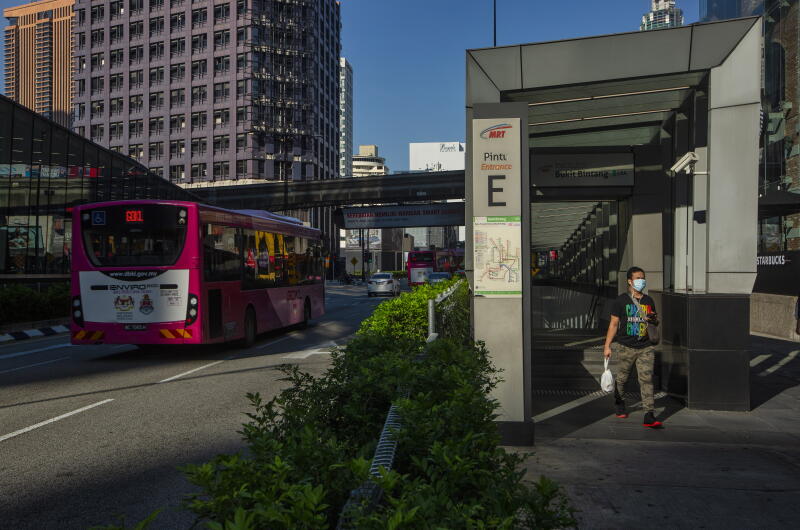Upsurge in dengue cases recorded in Malaysia
Sign up now: Get insights on the biggest stories in Malaysia

Many Covid-19 hotspots are also hot spots for dengue, especially in Selangor and Kuala Lumpur.
PHOTO: EPA-EFE
PETALING JAYA (THE STAR/ASIA NEWS NETWORK) - There is so much attention on Covid-19 that many people forget that Malaysia is battling another deadly disease at the same time - dengue.
Many Covid-19 hot spots are also hot spots for dengue, especially in Selangor and Kuala Lumpur. On Sunday (April 19), the number of new dengue cases outnumbered those of Covid-19.
That day, 139 new cases of dengue were reported throughout the country, according to the government's iDengue portal. Between Jan 1 and April 18 this year, 63 people have died of the disease.
As for Covid-19 cases in Malaysia, 84 people tested positive on Sunday. On Monday, there were another 36 cases, bringing the total number of local cases to 5,425.
According to iDengue, a total of 37,840 cases were reported between Dec 29 last year and April 19. From April 2 to April 19 alone, there were 2,725 cases.
Health Ministry data shows that Selangor has the highest number of dengue cases, with 22,826 from Dec 29 to April 19. This is followed by Johor (3,106) and Kuala Lumpur (2,854).
Many areas in Selangor, especially in the Hulu Langat, Petaling and Hulu Selangor districts, are considered hot spots for dengue, where the disease has been detected for over 30 days.
Selangor also appears to be a hot spot for Covid-19 cases. Its cumulative total of 1,345 cases as of yesterday is the highest among the states and Federal Territories.
This is followed by Kuala Lumpur, with 1,008 cases, including four new ones reported yesterday.
According to the Health Ministry, as of Sunday noon, areas in Selangor such as the Petaling, Hulu Langat, Gombak, Klang, Sepang and Hulu Selangor districts were deemed Covid-19 red zones.
Hulu Langat had 446 cumulative Covid-19 cases, followed by Petaling with 375 cases.
In Kuala Lumpur, among the areas with a large number of Covid-19 cases were Lembah Pantai (628 cumulative cases), Kepong (157) and Titiwangsa (134).
It was reported that in 2018, there were a total of 80,615 dengue cases and 147 people died of the disease. The year before, there were 83,849 cases and 177 deaths.
The highest number of cases recorded in the past decade was in 2015, with 120,835 cases and 336 deaths.In an interview with Bernama, Universiti Kebangsaan Malaysia public health specialist Rozita Hod expressed her concern that the threat posed by dengue may have been forgotten amid the Covid-19 crisis.
Dengue fever is caused by four different types of viruses transmitted to humans by a bite from the female Aedes mosquito of the aegypti and albopictus species.
"As we all know, dengue is dangerous as it can cause death and there is no specific cure for it.
"Right now while we are busy fighting Covid-19, people are starting to forget how dangerous dengue is," Dr Rozita told Bernama, adding that like Covid-19 cases, dengue infections were also rising.
She said though there were more Covid-19 deaths in Malaysia than dengue fatalities this year, dengue should not be taken lightly as it had directly affected more people than Covid-19.
"The number of Covid-19 cases in Malaysia stood at 5,389 as of Sunday, but in the case of dengue, over 30,000 cases were reported between Dec 29 and April 7," Dr Rozita pointed out.
Not all dengue cases are treated in hospitals as only those suspected to have dengue haemorrhagic fever are warded; the rest are given fever medicine but are required to go for follow-up checks at the nearest clinic, she explained.
Considering that government hospitals and clinics are now busy handling Covid-19 cases, the last thing they would want is an upsurge in dengue cases.


